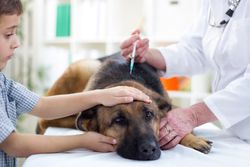
Veterinarians often warn pet owners about the peril of heartworms. These foot-long parasites are transmitted through mosquito bites and infect both cats and dogs, though the latter is much more commonly affected. What you may not know is how resilient, dangerous, and widely communicable they are. Below is a brief guide to heartworm disease and how to prevent it.
What Makes Heartworms Dangerous?
Heartworms cause severe and sometimes deadly diseases in many species of mammals. They mature and produce their own offspring in dogs, sometimes resulting in hundreds of parasites living in your pet’s lungs, heart, and arteries. These parasites can cause permanent damage after they’re eradicated. Cats are not ideal hosts, as most worms won’t make it to adulthood inside them. However, they are still susceptible to the larvae that cause Heartworm-Associated Respiratory Disease.
Why Is Prevention So Important?
Treatment medication exists for dogs, but prevention is the only protection for cats. Further, even if heartworms are eradicated in canines, the damage may be irreversible. Deter infection in the first place through year-round medication recommended by a veterinarian, no matter where you live or what season it is.
 The heartworm’s life cycle relies heavily on mosquitoes, where larvae must develop a few stages before traveling to the mouth of the insect. When a host is bitten, the larvae migrate through the bite and takes six more months to reach full maturity. Adult heartworms can live five to seven years in dogs or two to three years in cats. When adults reproduce, mosquitoes pick up the new larvae and spread it to other hosts. Because of this long, continuous life cycle, constant prevention is vital.
The heartworm’s life cycle relies heavily on mosquitoes, where larvae must develop a few stages before traveling to the mouth of the insect. When a host is bitten, the larvae migrate through the bite and takes six more months to reach full maturity. Adult heartworms can live five to seven years in dogs or two to three years in cats. When adults reproduce, mosquitoes pick up the new larvae and spread it to other hosts. Because of this long, continuous life cycle, constant prevention is vital.
How Can You Detect Heartworm Disease?
Detecting heartworm disease in pets is tricky. In dogs, symptoms can be virtually nonexistent at first, then take a turn for the worse the further the condition progresses. Mild signs include unusual fatigue, loss of appetite, and coughing, while heavily infected dogs may experience a swollen abdomen, heart failure, or caval syndrome, an often-fatal form of cardiovascular collapse. The range of symptoms is even greater in cats, from lack of appetite to asthma-like attacks to seizures. In the worst cases of infection, there are no signs, and affected felines may abruptly collapse and pass away.
During annual checkups, veterinarians perform a blood exam to check for mature heartworms. Testing positive will require further examinations to be certain. Your veterinarian will then recommend the best options for treatment.
Hayward Animal Hospital is the premier veterinary clinic for preventive care and diagnostic treatments in Sawyer County, WI. In addition to thorough examinations, this state-of-the-art animal care center has in-house lab testing, diagnostics, internal medicine, digital X-ray monitoring, and complete hospital care. Their veterinarians and staff are highly trained and passionate about the health and well-being of every pet they treat. Learn more about their services online and call (715) 634-8971 to set up an appointment.
About the Business
Have a question? Ask the experts!
Send your question

